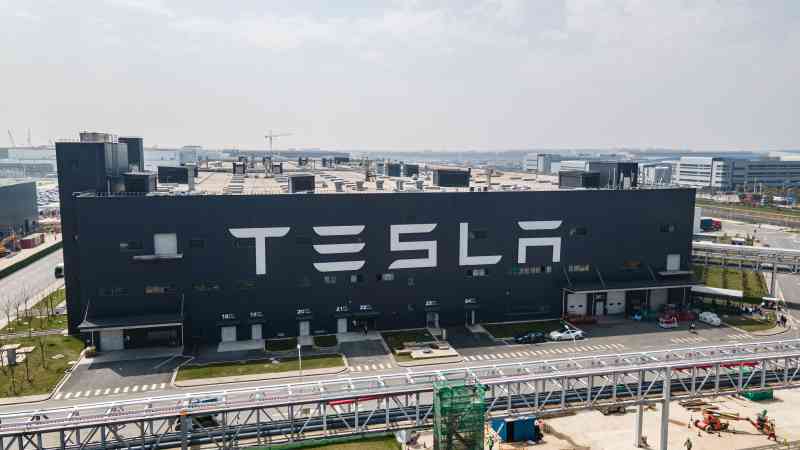Tesla wins cut to EU tariff on cars built in China
Tesla has escaped the worst of a punishing round of tariffs set to be imposed on Chinese-built electric vehicles shipped to Europe.
The California-based electric vehicle manufacturer, which is led by Elon Musk, faces a 9 per cent levy on its China-built cars, well below the double-digit increase due to be imposed on rivals.
BYD, the Chinese carmaker that briefly overtook Tesla to become the world’s largest electric vehicle manufacturer last year, will face a 17 per cent tariff. Geely, whose brands include Volvo, Lotus and Polestar, will be set a 19.3 per cent levy, while SAIC Motor, which owns MG, faces a 36.3 per cent levy.
The proposed tariffs will be on top of the European Union’s standard 10 per cent duty on car imports. They follow an investigation by the European Commission into what it says are unfair state subsidies that threaten “material injury” to Europe’s car industry. Beijing has threatened to retaliate with tit-for-tat levies on European imports and is challenging the measures at the World Trade Organisation.
Inspectors who visited Tesla’s plant in Shanghai found that while the company was benefiting from cut-price batteries and cheap land, it had received fewer government subsidies than China’s domestic manufacturers.
The planned tariffs will be subject to a vote by the EU’s 27 member states at the end of the month. The issue has become politically charged among members and is strongly opposed by carmakers, particularly German companies that export to China.
In a statement posted on X, the China Chamber of Commerce to the EU said that imposing trade measures was “unacceptable” and it expressed “strong dissatisfaction and firm opposition to the EC’s protectionist approach”.
Seat said that it was working with Volkswagen Group, its German parent company, to reduce the 21.3 per cent planned tariff on its China-made Cupra Tavascan.
The commission has estimated that Chinese brands’ share of the EU market has risen to 8 per cent, from below 1 per cent in 2019, and could reach 15 per cent in 2025. It says prices typically are 20 per cent below those of comparable EU-made models.




Post Comment